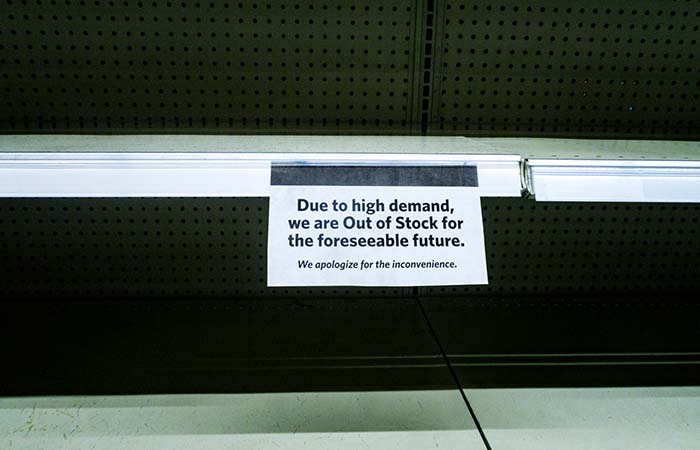Economics corner: Medicines shortage solutions?
In News
Follow this topic
Bookmark
Record learning outcomes
Leela Barham casts her eye on Sandoz UK and Ireland’s ideas to fix medicines shortages
Everyone’s talking about medicine shortages these days. In a recent LinkedIn post, Peter Kelly, head of Sandox UK and Ireland’s generics business unit, set out six key ideas to fix the problem. Will they do the trick?
Yet shortages are getting worse, so bad in fact that the Nuffield Trust has said that patients face the ‘new normal’ of medicine shortages. Community Pharmacy England (CPE) agrees it is a daily battle.
Statistics back this up. Just to pick one, the British Generic Manufacturing Assocation (BGMA) has pointed to a 100 per cent increase in shortages of medicines between January 2022 and January 2024. More statistics are in its supply issues dashboard. The focus has been on shortages of hormone replacement therapy and antibiotics, as well as medicines for attention deficit hyperactivity disorder and diabetes.
The cost of shortages
It matters not only to the health of patients when there are shortages, it costs community pharmacy and the NHS too. The Nuffield Trust suggests that the total excess costs for medicines on the concessions list were £220 million from October 2022 to September 2023. That estimate is “highly cautious”.
Drivers of shortages
Sandox’s Peter Kelly wrote there are two key causes for UK medicines shortages: the economic framework for medicines throughout the supply chain and Brexit- related changes to regulation. Those are big-ticket items and there is a lot within them. They resonate with the diagnosis of the problem by others: CPE says shortages are driven by everything from supply issues like manufacturing problems to parallel exporting. The Nuffield Trust points to fragilities on a global level and economic factors such as pricing policies and trade barriers.
Six fixes
Kelly has put forward six fixes. It looks like he has taken a leaf out of the Nuffield Trust’s book – it pointed out that there are not likely to be big formal changes in the EU-UK relationship any time soon.
A fairer reimbursement system for community pharmacy
There is an implicit call for more money for community pharmacy and the hope that the next funding agreement won’t be capped in the future. Cheap to say, but expensive to deliver.
There is plenty of support for changing the system, so Kelly is just adding a voice to the clamour for reform.
The change in government might allow the sector to convince ministers that the previous Community Pharmacy Contractual Framework was not fair, yet messages, so far, are about financial constraints. CPE says negotiations with the new government may start again soon.
Secondary care and other tenders recognising factors other than price
Adding other factors beyond price into tenders is suggested to avoid limiting competition in the longer term, which can create supply challenges down the line. Germany and the Nordic countries are highlighted. There is typically much to learn from other countries, and it might just bring in fresh thinking.
Increased information sharing
Kelly says that information sharing on shortages has improved and this needs to be made business as usual. Nuffield has also called for more openness about shortages which would bring the UK more in line with Europe.
Kelly says companies have to do their bit to flag issues earlier. Nuffield has heard that companies can be hesitant to notify because of the potential for losing future contracts. More work has to be done to figure out if that is an issue and how to fix it.
Regulatory flex in times of real shortage
Flexing regulation has worked, according to Kelly, as shown by the Covid-19 pandemic. He points to how the UK had enough medicines to keep supply going across all major therapy areas. Keeping that willingness to flex needs to become more routine, allowing for the use of unlicensed medicines, stock from other markets and the acceleration of marketing authorisation.
Flexing regulation has been put forward by CPE albeit focused on how pharmacists should be able to more easily make changes to prescriptions if they are for treatments that are in shortage. There is support for this too from the Royal Pharmaceutical Society.
Reviewing regulatory flexibilities has support and seems like it could be a fruitful area to work on.
Electronic PI leaflets
A practical suggestion is made to introduce electronic patient information leaflets to counter supply issues introduced by artwork changes. Kelly argues that the UK needs to keep pace with electronic patient information leaflet standards in Europe and beyond as part of making it easier to bring stock to the UK.
A plan for biosimilars
Kelly recognises how well the NHS has already done on the adoption of biosimilars, helping to generate savings as well as support patient health. An ask is made for the UK’s pricing deal, the Voluntary Scheme for Branded Medicines Pricing and Access (VPAG), to exempt biosimilars from the rebates that the deal requires. That looks like special pleading but there is no doubt that what amounts to a sales tax makes the UK less attractive. It will be hard to change VPAG anytime soon. The current deal began on 1 January 2024 and is due to run for five years.
Leela Barham is a health economist

